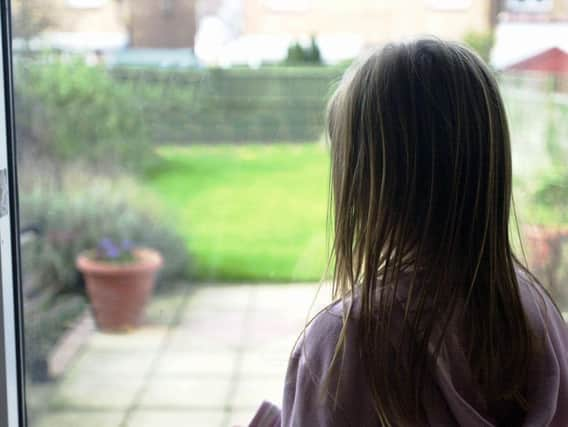NSPCC demands children in homes with domestic abuse be recognised as victims under new laws


The NSPCC is urging the Government to rethink a proposed new definition of domestic abuse that does not categorise children in domestic abuse environments as victims in their own right.
They say it ignores the effect growing up in abusive households has on children, despite it being a factor in more than half of child protection assessments across England last year.
Advertisement
Hide AdAdvertisement
Hide AdThe charity has also pointed to some 2,971 children in Northamptonshire who would fall under the definition.
A consultation closed last May but the government have yet to publish the outcome as part of an upcoming white paper.
Department for Education figures show domestic violence was a factor in 246,720 child protection assessments across England in 2017/18, leaving potentially a quarter of a million child victims unrecognised by the justice system.
Legal recognition as victims of domestic abuse would give children greater protection through protection orders and would help professionals to take action to protect children at risk.
Advertisement
Hide AdAdvertisement
Hide AdThe call is backed by Lincolnshire brothers Luke and Ryan Hart whose father murdered their mother and sister in 2016 after two decades of domestic abuse.
Ryan said: "We didn’t recognise it as abuse because there was never any violence but it was coercive control, financial, emotional, psychological abuse.
"What is often missed is the effects of living in that environment has on kids, growing up not only witnessing abuse but experiencing it day in and day out, how that affects us growing up and into adult life."
Services such as the NSPCC’s Domestic Abuse, Recovering Together (DART) help children and mothers recover from domestic abuse together and can help minimise the long term impact domestic abuse has on child victims.
Advertisement
Hide AdAdvertisement
Hide AdAlmudena Lara, head of policy at the NSPCC, said: "It is quite astonishing that the government is dragging its feet when deciding whether to recognise young people as victims when almost a quarter of a million children that we know of are living with domestic abuse in England alone.
"As well as the day-to-day distress that living with domestic abuse creates, it can cause long-term problems into adulthood that can only be addressed through targeted services that understand the complex trauma children living with domestic abuse experience.
“For this to be done effectively we need government to open their eyes to the harm domestic abuse has on children and give them victim status in the upcoming White Paper to ensure they receive the services they need.”